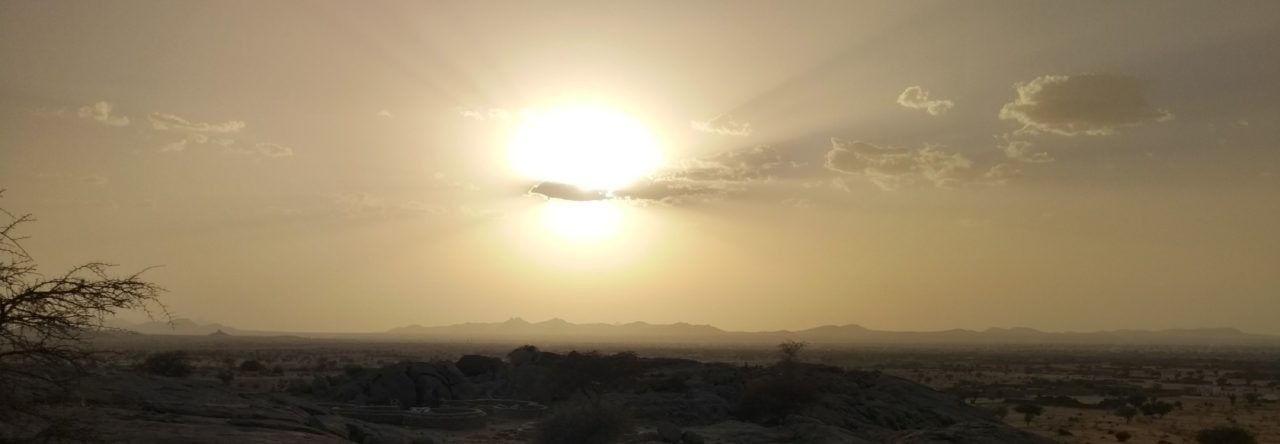I recently took off southeast from Abeche with Abdoulaye and his brother, “Omar” to visit their home village, who’s name in Maba is literally “eat and rest.” As it turns out, this is quite the appropriate name because that’s precisely what we did!

The trip took about 3 hours to go 90km (56 miles), so you get the idea of what the roads were like. We arrived early afternoon and immediately went to greet the adopted mother of Abdoulaye’s brother. Their mother had given Omar to her sister to raise because she couldn’t have children, so he had grown up in the village and remained there even when Abdoulaye and their mother moved to the city.
Greetings were very warm, and the initial greetings/blessings lasted several minutes each as is their custom. The longer it’s been since you’ve seen someone, the longer the greeting. Even if you repeat the same words over and over (“God Bless, I’m well, thank God, God Bless, Praise God, etc…”), no big deal. So after the initial greetings we were seated on large mats next to where they had stored the peanut harvest (which was convenient because you could just reach over and grab a handful of peanuts whenever you wanted). We spent the afternoon in further greetings every few minutes as the women came by to bring food or the men came in from the fields.
The night in the village is much cooler than in a large town like ours. I slept under a large blanket and still was cold. So the next morning none of us moved to much until the sun had started to warm the air a bit. After a breakfast of sweetened millet with milk and goat’s head soup, we went for a walk around the nearby wadi. A wadi is a seasonal riverbed that runs with lots of water when it rains but during the dry season the water remains underground, sometimes only a few feet. This wadi was full of date palms, mango trees and guava trees. We ate our fill of guavas straight from the trees while watching the monkeys playing in nearby trees.

I was told to ride the horse, apparently they assumed I was too fragile to walk all the way to the wadi 
view from horseback, headed to the wadi 
The stirrups were sized for someone about a foot shorter than me, so I just let my legs dangle. not. comfortable. 
The owner of my horse striking a pose 
In the wadi, looking like a band of Wild West outlaws 
The wadi was full of guava and mango trees, date palms, and what I think were figs 
This flower is incredibly beautiful, especially in contrast to the various shades of brown all around 
The broken pump at the village well
That afternoon we walked in a different direction to see the well that was dug several years ago by some charities in cooperation with the European Union. It was located between several villages so that it could be used by all. But no one from the village was trained to repair it, so when a technician who had been working in a nearby town on another project finished the project and left, there was no one responsible or trained to repair it. So for the past year it has sat idle. This is such a common scenario in the developing world. Helping people improve their lives is usually much more complicated than assumed.
As we walked back from the abandoned well, my head began to throb and I started feeling worse and worse. By the time we arrived, I just wanted to lay down and try not to throw up from the pain. When I laid down it was around 5 PM, and I didn’t get up again that night. Fortunately though my friend Abdoulaye sat up with some men, including the village chief, and shared the gospel along with more of his testimony. As I was in and out of consciousness I heard them around me talking, but didn’t know what was going on until he filled me in the next morning. He shared openly, and people were attentive, and when a guy who had been in Sudan started to argue and tell them not to read the Bible, the rest of the group made him be quiet. Abdoulaye was very encouraged by this time!
The next morning, my head still throbbing, we gathered our things and after another round of goat’s head soup, headed home. I arrived at the house around lunchtime, thankful to find a bottle of Alleve and a real bed…
